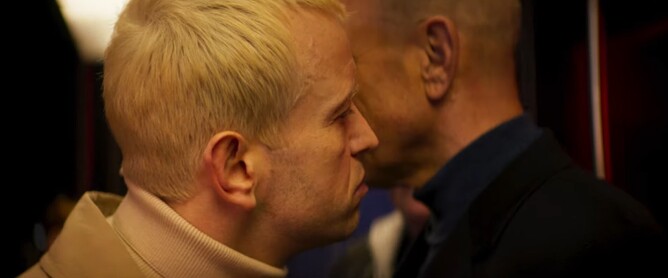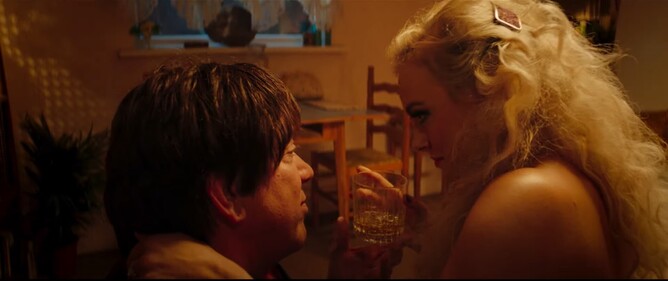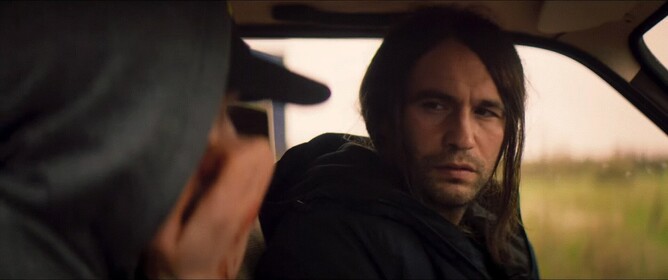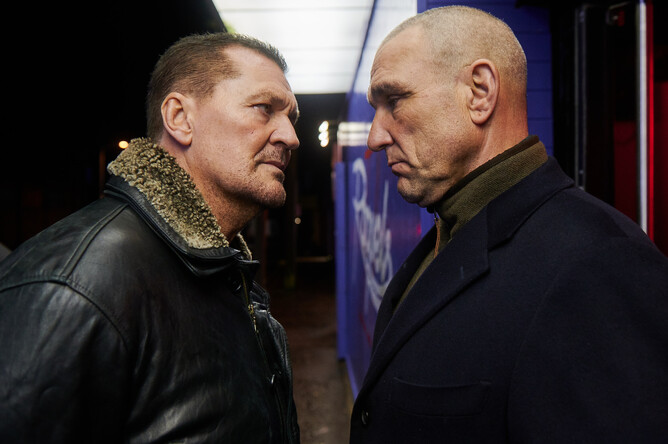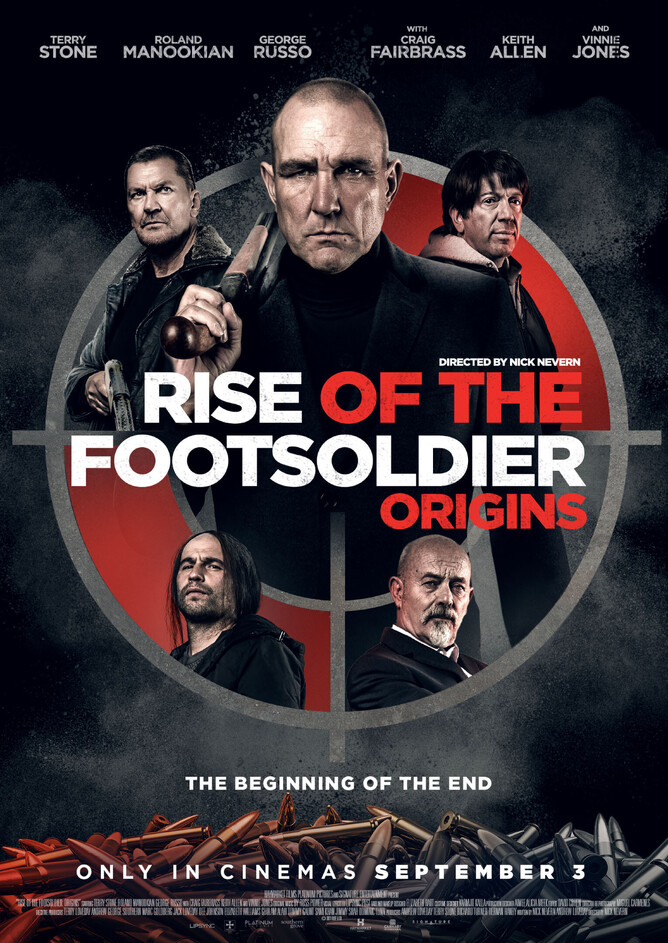Who’d have bet, fifteen years after the release of Rise of the Footsolider, there would be a cinema release for a fifth film in the franchise...
Who’d have bet, fifteen years after the release of Rise of the Footsolider, there would be a cinema release for a fifth film in the franchise; a franchise whose continued presence epitomises success in low-budget British filmmaking of the last twenty years. Given the mainstream critical reception deriding the film as ‘Green Street but without that guy from Lord of the Rings’ and a film ‘that robs you of two hours of your life’, not many would have backed this particular horse. Savaged by film critics as violent, vicious, and misogynistic, the films have had no pretensions of artistry and cinematic flair, yet the franchise has continued to scratch out a market both home and abroad, often reliant on the straight-to-DVD, Friday night supermarket shopping buying audience. But now home viewing is more about streaming services, and the #MeToo movement calling time on abuse against women onscreen and in the film industry, where now for the low-budget British gangster film? It appears writer, Andrew Loveday and director, Nick Nevern have the answer with RISE OF THE FOOTSOLDIER: ORIGINS. While it won’t be knocking on the doors of Bafta, it is clear the film aims to do more than merely squeeze out every last drop of the Tony Tucker story. Swapping the more extreme toxicity of the franchise for a more cinematically aware experience, the film balances violence with style, benefitting from some polished performances and a budget wisely spent. Have Loveday and Nevern been taking notes at film school? Oh yes they have.
The plot depicts the back story of Tony Tucker, leading up to events, that lead up to the event of the Rettendon murders of 1995, where Tucker along with Patrick Tate and Craig Rolfe were killed. The story itself has been presented and re-presented so many times on film, it rivals only the Kray twins in inspiring and shaping the identity of the British gangster film. Initially told as a flashback, the film reimagines Tucker as a goodun-gone-bad type guy, ex-army affected by serving in the Falklands War undone by drugs, money, and power. The film opens with Tucker confronting an apparent rival, Bernard O’Mahoney (Vinnie Jones) over patch-rights to a local nightclub. As O’Mahoney floors Tucker, the flashback begins. Here Tucker is an opportunist, but with a keen sense of justice and morals, and in need of an outlet for his war-time unspent aggression. As Tucker proves himself to be useful as doorman to owners of a local nightclub (turns by P.H. Moriarty and Keith Allen), so he etches out his own low-key empire. But when he befriends a small-time drug dealer, Craig Rolfe, Tucker gets a taste for drugs, sex, and small-time drug-steals. As his drug habit grows, so do the deals, violence, and stakes, threatening to spill over into an unprecedented gang war and the unravelling of everything Tucker has worked for. The complications Tucker’s decisions bring leads to him forming a partnership with both Rolfe and Pat Tate. How far and how low is Tucker prepared to go?
Well, we all know where the story heads. But the film ends where the first instalment begins and without the dramatic denouement of the murders, the franchise can look ahead to a further re-imagined ‘beginning’. But it means the film lacks that final explosive spectacle. However, it’s replaced with some ‘in-the-know’ and provocative events that will please fans of the film and (hopefully) stir up some online speculation. An ending with its own built-in marketing tie-ins, the production has learnt what works well for Hollywood serialisations and effectively appropriated these stylisations into a British context, ensuring the film maixmises both homegrown and global appeal. This is a film that understands its fan base as well as its commercial market. With the Falklands War, Sam Fox, club scene, and football hooliganism, there are just about enough 80s touchpoints to orientate the audience in the time period. A blonde George Russo as an estate agent in a turtleneck and mac screams of Inter-City-Firm! Whilst the plot sags in places, the film works best in how it tells the story.
No one will claim the film is progressive in female representation, but this ROTF is more restrained in the sexualisation of, and violence against women onscreen. The toning down of female objectification to a little coked-up soft titillation is a welcome development and one that epitomises the film’s drive towards appealing to a broader audience. Praise must be given to the film’s editor, David Cohen, in the handling of the violence. While some may feel the film has moved too far away from the franchise’s signature violent sequences (I for one was disappointed the film didn’t deliver on what the trailer promised), Cohen’s editing vitalises the film’s visceral tone, daring the audience not to look away, reminiscent of Ben Wheatley’s Kill List. When a flat is decked in plastic sheeting, you know there’s only one way the scene will go.
But what really sets the film apart from the others in the franchise are the performances. There are the usual crowd of Terry Stone as Tucker and Craig Fairbrass, on the heels of his acclaimed performance in Muscle, as Pat Tate. And there are some knowing inclusions to keep the fans happy. The film provides a welcome return to form for Vinnie Jones as doorman and a sort of ‘fixer’, Bernard O’Mahoney. While the role isn’t a stretch for Jones, he brings a much-needed levity to the part, adding a serious tone and grittiness to the overall look and feel of the film. George Russo as local gang leader and ICF member, Joey Waller, is always watchable and worth the price of the cinema ticket alone. But it is Roland Manookian as Craig Rolfe who shines. Manookian delivers a remarkable performance as the coked-fuelled dealer, hitting the fine line between desperate, sleazy, and wildness and achieving what should be implausible; making Rolfe almost sympathetic. This is character acting at its best and both Russo and Manookian’s performances demonstrate the depth of acting currently circulating on the British independent film scene.
Whether or not Vinnie Jones onboarding, or the reception for Craig Fairbrass’ performance in Muscle influenced the production budget, it is evident money has been spent in the right places. The arrival of filmmaker Gerard Johnson on the British scene in recent years has enhanced the visibility and reputation of low-budget British film, increasing expectations on quality and creativity. With Hyena and Muscle, Johnson demonstrates a transition into a more mainstream space is possible for such violent, male-centric films. Nick Nevern taking the helm of this latest Footsoldier instalment can be seen as a serious move into Johnson territory, and along with Andrew Loveday, responsible for injecting some much needed style and cinematic know-how into the film. Could Origins be the mainstream crossover the franchise has been crying out for? While the film could be more effectively paced in places, and enlivened with some creative dialogue – and please god, a decent female role worthy of Helen Mirren’s Victoria in The Long Good Friday - there’s a lot to like about this new-look Footsoldier, and credit should go to both Nevern and Loveday for this. With a cinema release imminent, it will be interesting to see how the film is received by mainstream reviewers and how it performs at the box-office. But on the evidence of Origins, expectations are high for a possible next episode.
Kat Flint-Nicol
RISE OF THE FOOTSOLDIER: ORIGINS is showing exclusively in cinemas from September 3, courtesy of Signature Entertainment.


